In the fast-paced urban life, coffee has long become an indispensable “energy supplement” for people’s daily life. The Mobile Coffee Truck is gradually becoming a popular check-in spot on the streets with its flexibility, creativity and social attributes. It is not only a coffee making vehicle, but also an innovative business model that combines coffee culture, street art and convenient services.

Core Features
1.Flexibility and Low-cost Operation
- Without the need for high store rent and decoration costs, coffee carts can freely shuttle between commercial areas, office buildings, parks, event sites and other scenes to quickly respond to market demand.
2.Brand Customization
- From body painting, menu design to coffee cup packaging, brand stories and cultural elements can be integrated to enhance brand recognition. For example, an independent coffee brand attracts young consumers through “hand-painted illustration body + environmental theme packaging”.
3.Fast delivery and diversified menus
- Equipped with professional coffee equipment, it can make espresso, hand-brewed coffee, cold brew, special drinks and light meals to meet the needs of different customers. Some coffee carts also offer seasonal limited editions, such as osmanthus latte, coconut cloud ice Americano, etc.
4.Social interaction and scene experience
- Coffee carts often become social gathering places, where customers can watch baristas draw, take photos, check in or participate in on-site activities (such as coffee tasting sessions), enhancing the emotional connection between brands and consumers.
Internal equipment
1.Coffee making equipment
- Commercial semi-automatic/fully automatic coffee machines (such as La Marzocco, Nuova Simonelli);
- Italian grinders (such as Mahlkönig, Eureka);
- Fine coffee tools such as hand-poured pots, siphon pots, cold brew pots, etc.
2.Refrigeration and storage equipment
- Refrigerators (storing raw materials such as milk and juice);
- Freezers (preserving ice cubes and pre-packaged foods);
- Insulated cabinets (maintaining the temperature of hot drinks).
3.Auxiliary equipment
- Water purification system (ensuring water safety);
- Steam milk frother (making dense milk foam);
- POS cash register system and mobile payment terminal;
- Garbage sorting device and cleaning tools.
4.Optional value-added equipment
- Mobile power supply (supporting long-term outdoor operation);
- Sound system (playing background music or event promotion);
- LED display (displaying menus or brand information).
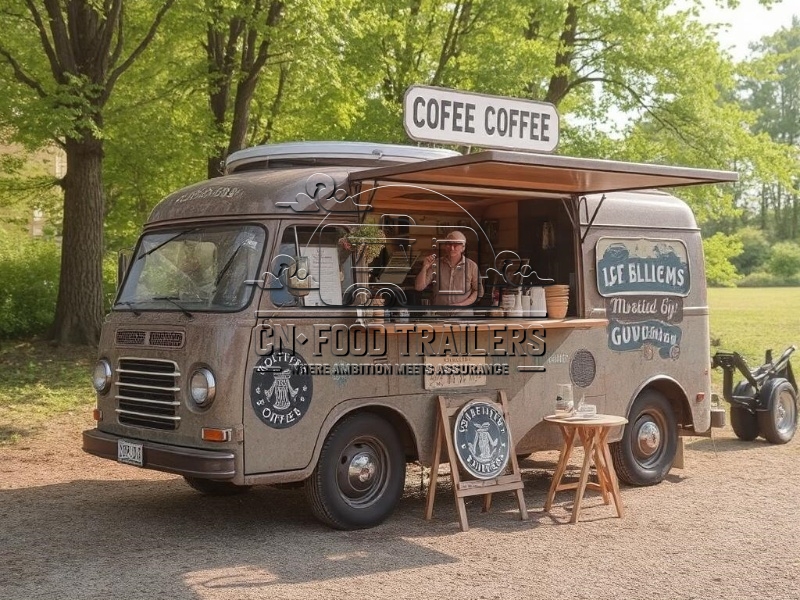
Application
1.Daily street business
- Standing in high-traffic areas such as commercial streets, office buildings, and around schools to provide convenient coffee services for office workers and students. For example, a coffee truck attracts commuters through a “buy one get one free during the morning rush hour” event.
2.Corporate cooperation and event customization
- Provide exclusive coffee services for brand conferences, company team building, weddings, etc. For example, at the annual meeting of a technology company, a coffee truck launched a “programmer special” (such as a double espresso + energy bar package).
3.Large-scale event and competition support
- In music festivals, marathons, exhibitions and other scenes, coffee trucks serve as supporting catering service providers to meet the immediate needs of participants. For example, a coffee truck launched a “fluorescent cup special” at an outdoor music festival, which became a popular prop for the audience to take photos.
4.Community service and charity activities
- Cooperate with the community to carry out activities such as free coffee giveaways and coffee knowledge lectures to enhance the brand’s sense of social responsibility. For example, a coffee truck held a “book for coffee” charity event in the community square.
5.Tourism and scenic spot support
- Provide special coffee in tourist attractions, camping sites, ancient towns and other areas, and launch limited editions (such as “Ancient Town Osmanthus Latte”) in combination with local culture.

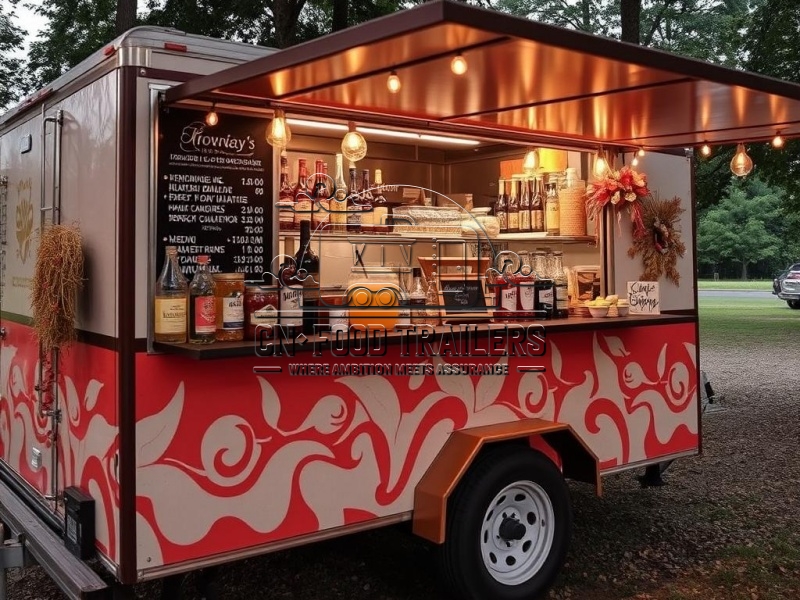
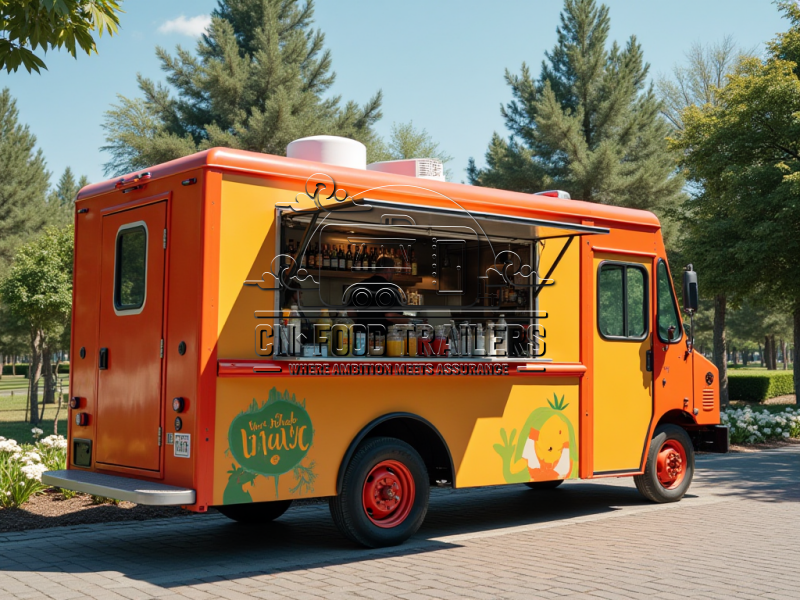

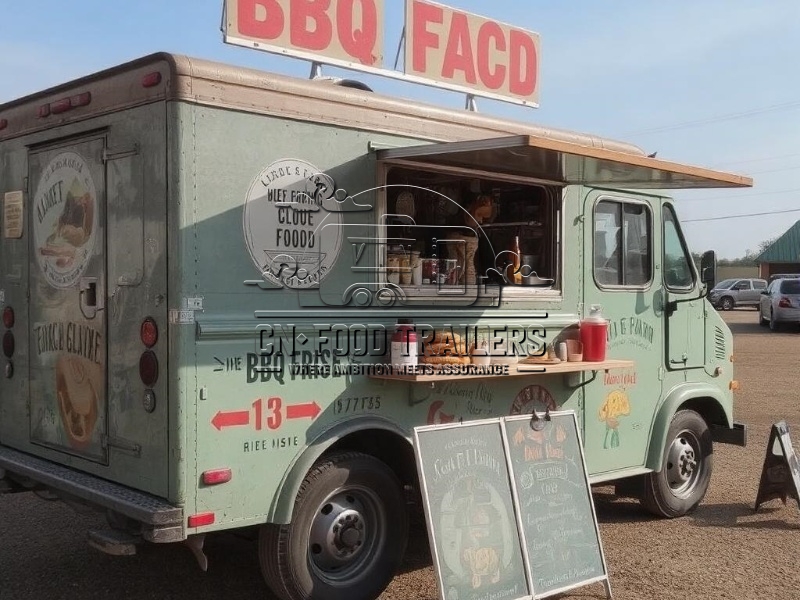
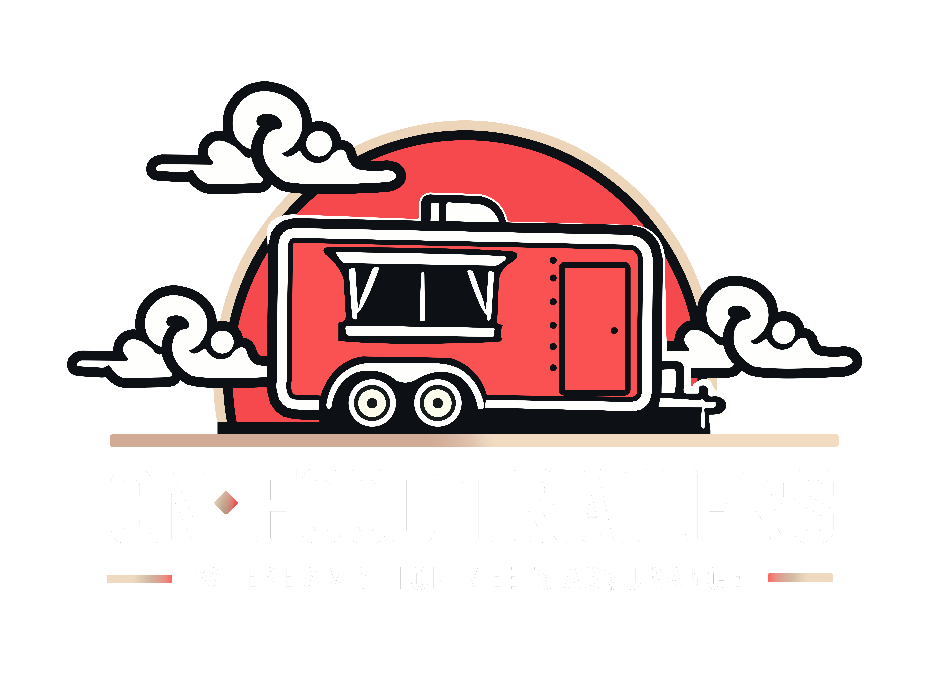
Leave A Comment